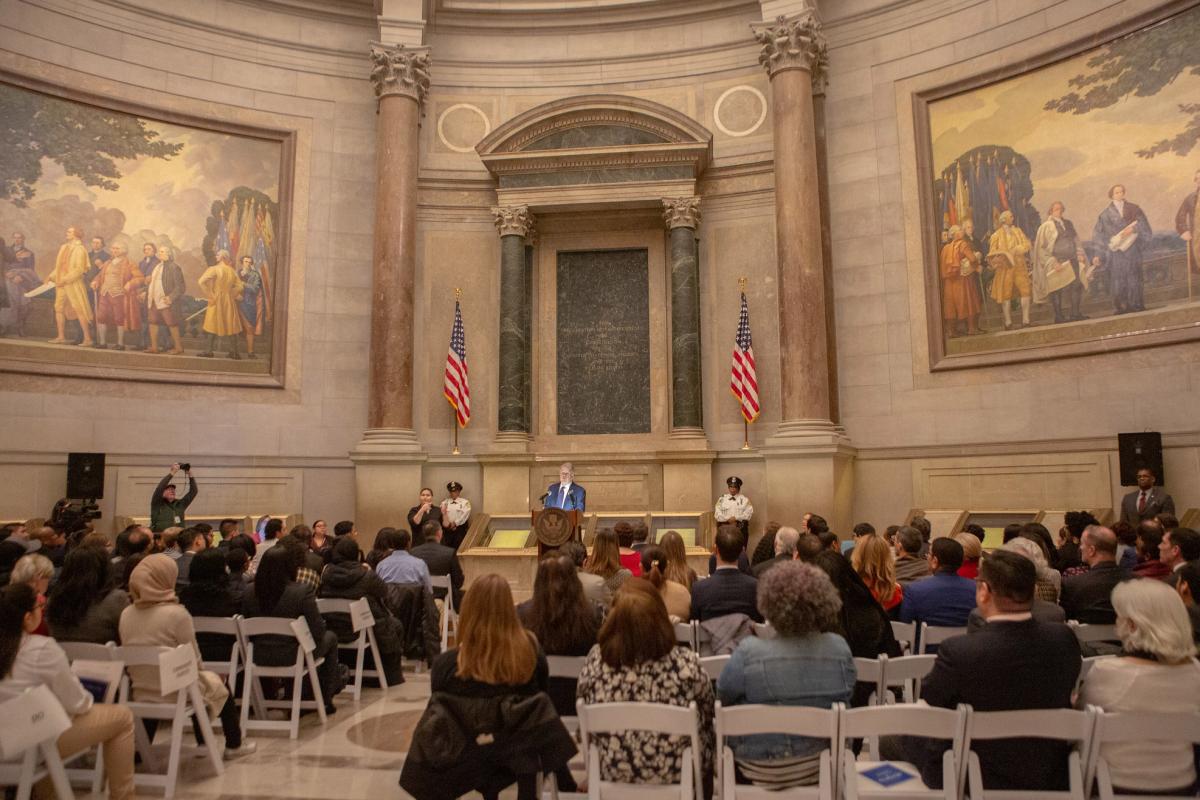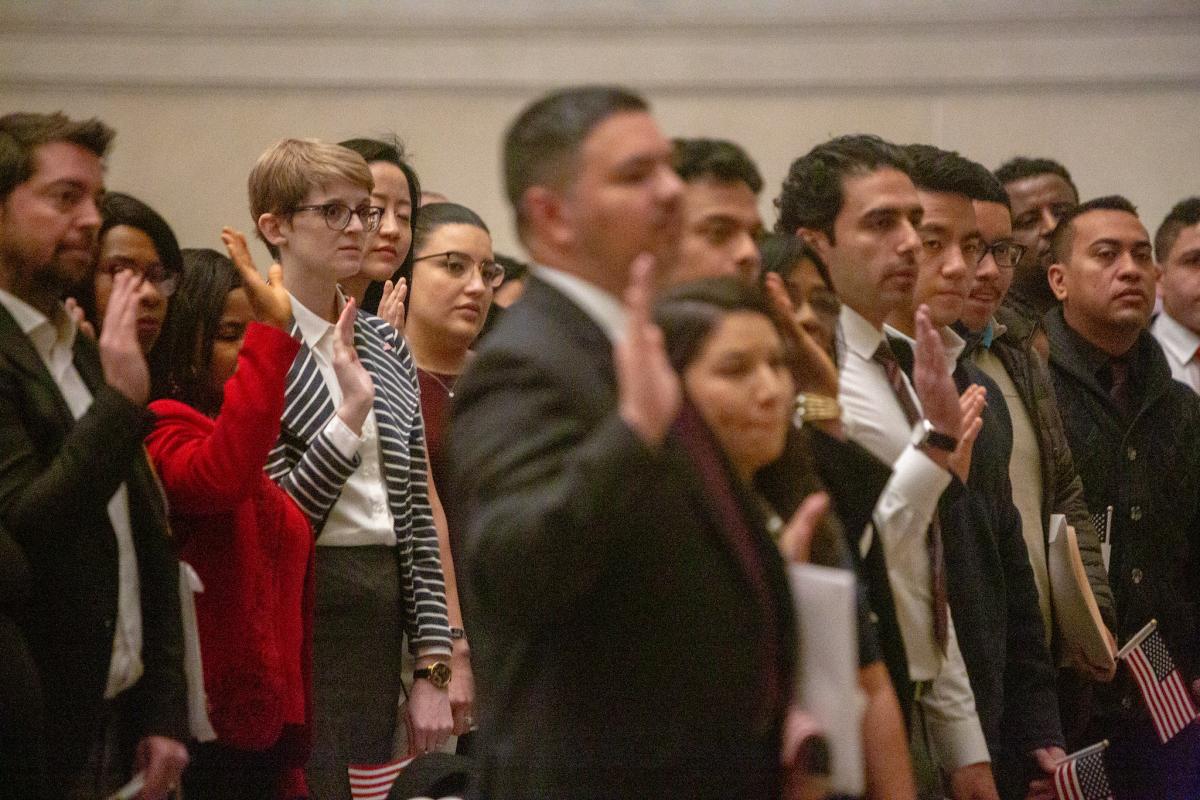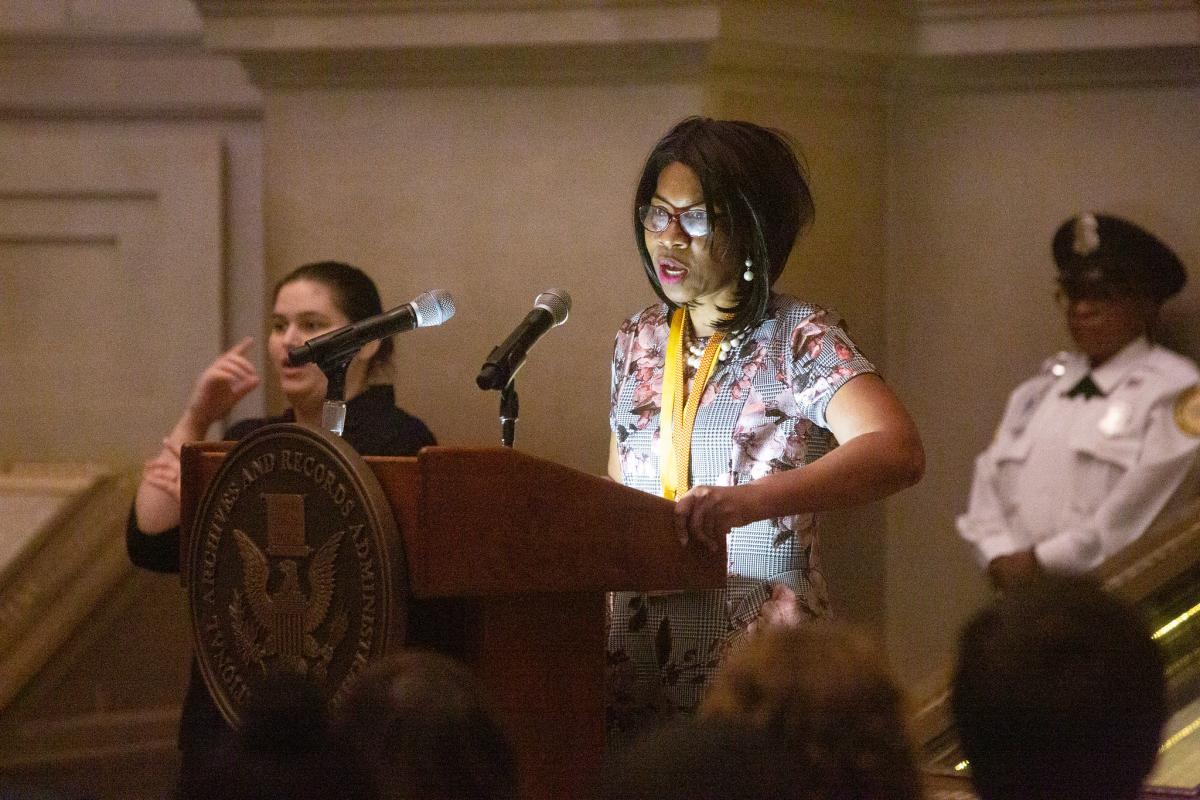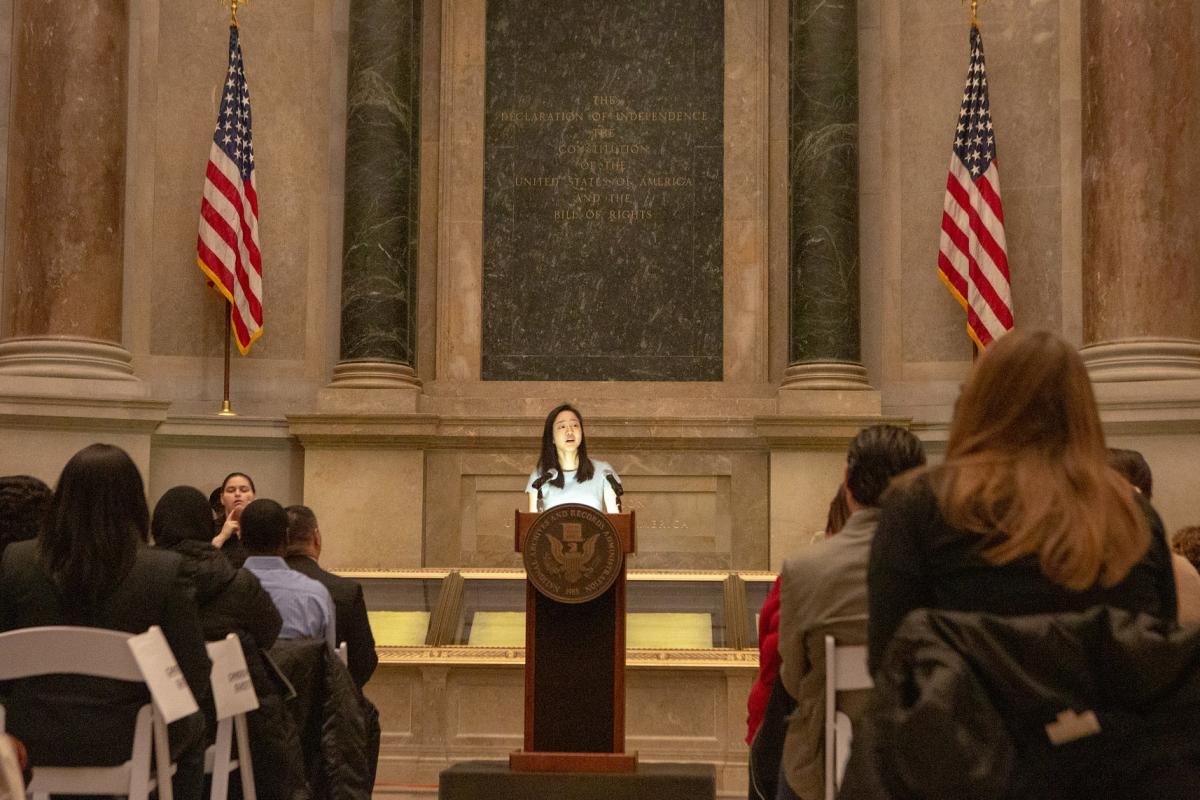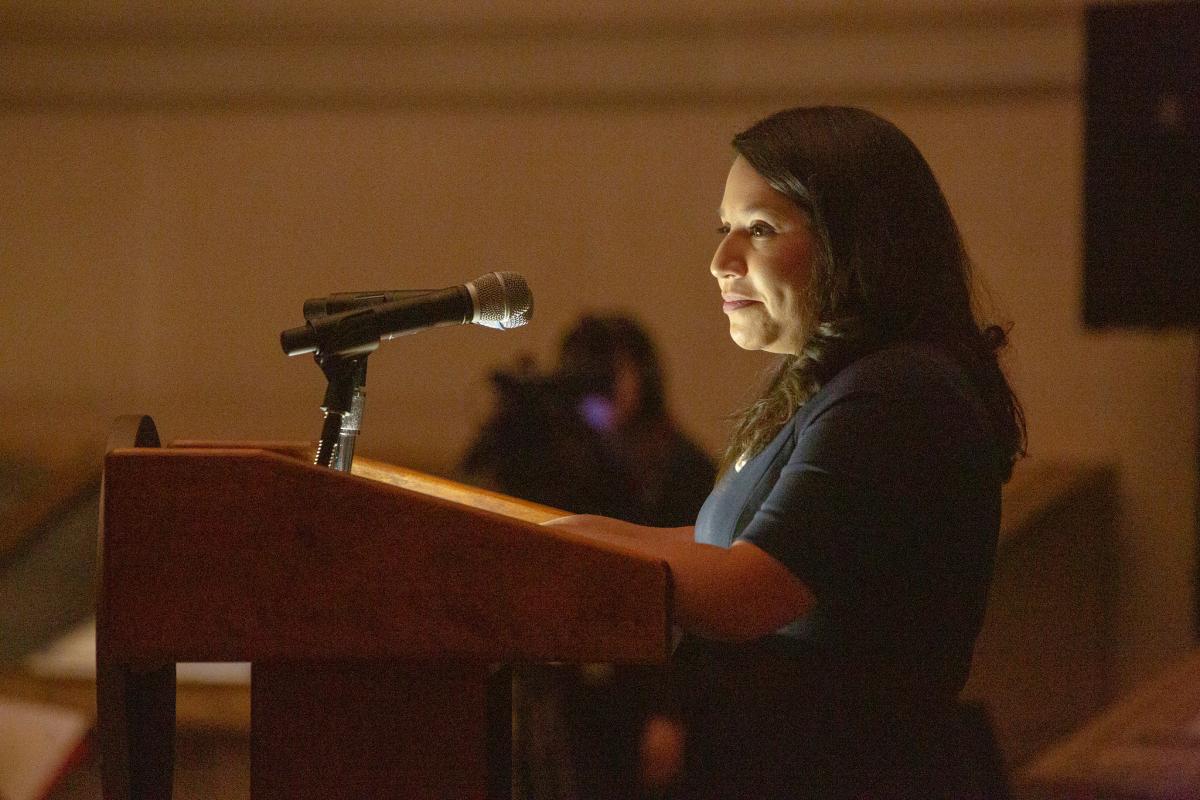
Bill of Rights Day Observance Welcomes New Citizens at National Archives
By Jonathan Marker | National Archives News
WASHINGTON, December 23, 2019 — Thirty-one new United States naturalized citizens took the oath of allegiance December 16 at the National Archives in Washington, DC. The ceremony was part of a special observance of Bill of Rights Day.
Observed annually on December 15, Bill of Rights Day celebrates the anniversary of the 1791 ratification of the first 10 amendments to the U.S. Constitution, which outline the fundamental rights of all American citizens.
The naturalization ceremony took place in the National Archives Rotunda, just steps away from the Declaration of Independence, the Constitution, and the Bill of Rights—collectively known as the Charters of Freedom. The new Americans hail from 16 nations: Belgium, Colombia, Egypt, El Salvador, Ethiopia, France, Guatemala, Guyana, Mexico, Nicaragua, Nigeria, Sierra Leone, Somalia, South Korea, Trinidad and Tobago, and the United Kingdom.
The Honorable Beryl A. Howell, Chief Judge of the United States District Court for the District of Columbia, administered the oath to the candidates.
Archivist of the United States David S. Ferriero addressed the new citizens and their guests at the Bill of Rights Day naturalization ceremony in the National Archives Rotunda.
“Each year, for Bill of Rights Day, we host a naturalization ceremony with the Department of Homeland Security, the United States Citizenship and Immigration Services, and the United States District Courts for the District of Columbia,” Ferriero said. “There is no better place to become an American citizen than in front of these hallowed documents.”
During the remarks portion of the ceremony, three newly naturalized citizens each spoke of their journeys to citizenship and described what it feels like to become an American.
“One thing I want to say to my fellow citizens is: if you came into this country and you thought you would not make it, you will make it,” Amy Boima Challe said. She immigrated to the United States from Freetown, Sierra Leone. Challe recently completed her associate’s degree in education at the University of the District of Columbia. “Work hard. I came to America with determination and, despite my situation, I did not give up.”
Chiseul Kim, who emigrated from the Republic of Korea, faced a travel dilemma when she learned that her naturalization application had been approved.
“I had already bought my tickets to visit my family in South Korea for the holidays for the 15th of December,” Kim said. “When the United States Citizenship and Immigration Services told me the ceremony would happen at the National Archives in front of the formative documents of this nation, and that that opportunity only comes around twice a year, I had to make a decision between postponing my flights and taking part in this ceremony.”
Kim said that when she discussed her options with friends and family, she found a strong advocate in her mother-in-law for attending the National Archives ceremony. Kim explained her mother-in-law’s own experience with a less formal ceremony made the special occasion feel “just like any other day.”
“Like most of us in this room know, immigrating is bittersweet,” Andrea Irene Argueta Aragon said. She and her husband came from Guatemala after they were selected for the Diversity Immigrant Visa (DV) Program. This program provides for a class of immigrants known as “diversity immigrants” from countries with historically low rates of immigration to the United States.
“We each have our own story of how we arrived here, but they’re all similar in that we left the place we called home: our friends, our families. After tearful goodbyes, we had a lot of learning to do—everything from the language, the culture, the system, the rules. Our hope for a better future, our determination to overcome challenges, and the deep desire to feel like we belong kept us going. Today, we can officially say that we belong.”
